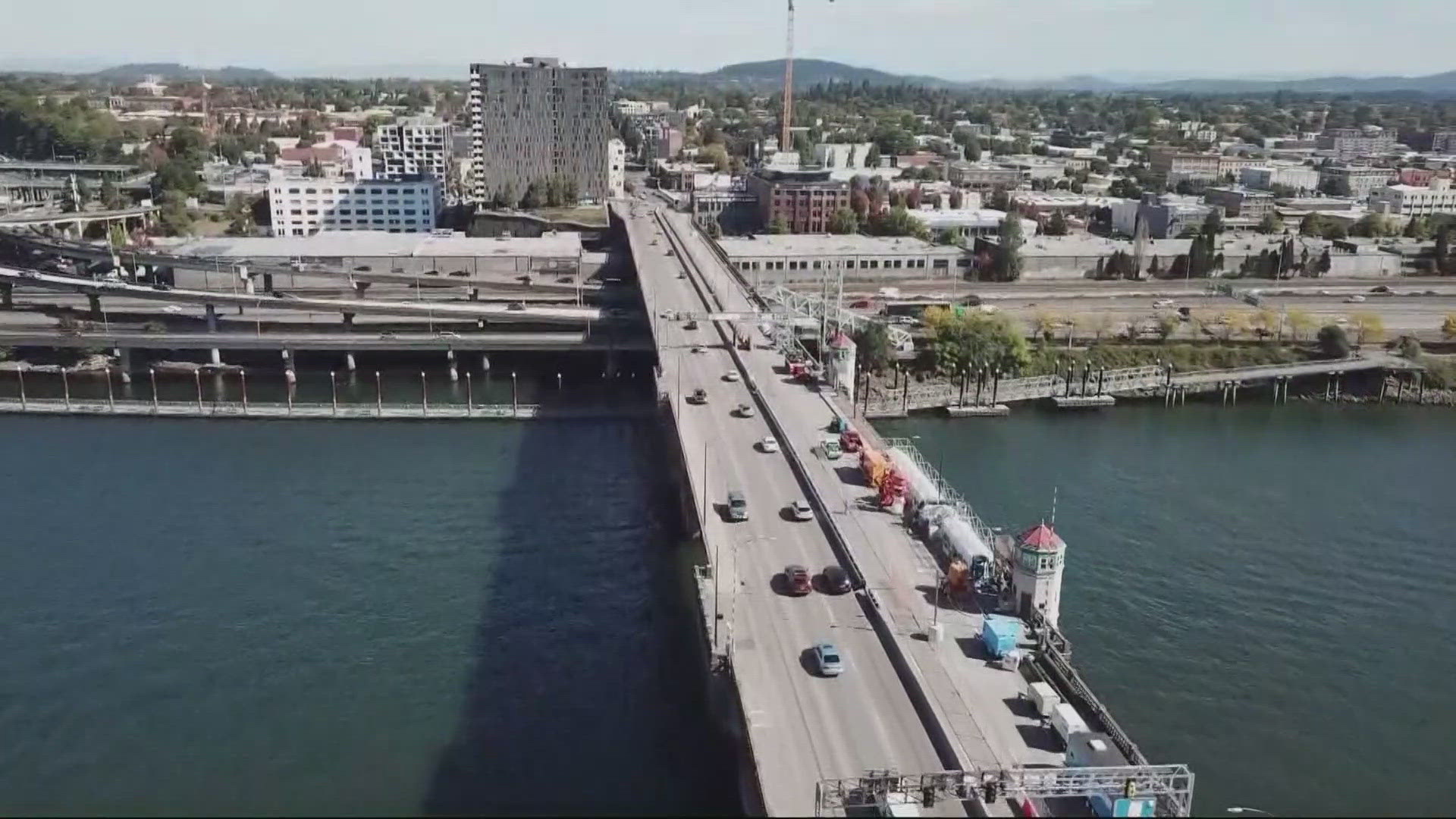SALEM, Ore. — Oregon's infrastructure earned a C- grade in a 2024 report card from the Oregon section of the American Society of Civil Engineers, the group announced Tuesday. That puts the state right at the national average, last published in 2021.
To develop the report card, civil engineers looked at things like bridges, ports, roads, aviation, schools and energy infrastructure, to name just a few of the 12 categories.
Oregon's overall grade matches what it received on the last report card back in 2019, but that obscures the changes to individual categories. According to the ASCE, the state's roads and bridges both declined a step. At the same time, Oregon's drinking water grade increased from a C- to a C — the highest grade that the state received in any category.
"The idea of the report card is not to illicit concern, it is to illicit action — it's to show where we're at in this point in time," said ASCE President Marsia Geldert Murphy during a press conference outside of the state capitol on Tuesday. "If you're bringing this report card home, your future doesn't look bright. So we have to look at our resources and how we develop enough resources to improve the system so our future looks bright."
The lowest grades went to Oregon's dams, stormwater, wastewater and transit systems, which all earned a D+. Dams in particular got a lower grade in large part due to their age and lack of seismic resiliency. Oregon schools received an "Incomplete" grade due to a lack of current data on school conditions, the ASCE said.
While the state has embarked on some major infrastructure upgrades of late, the report card highlighted how Oregon has not yet figured out sustainable funding sources that can keep up on maintenance and upgrades throughout the state as they are needed.
"Even though Oregon's grade remained the same since the last report card, there have been positive steps forward to improve the resiliency of Oregon's infrastructure and ensure those systems are capable of handling potential earthquakes, the consequences of climate change, and other hazards," said Ana Tijerina Esquino, chair of the 2024 report card project. "While Oregon's infrastructure is seeing benefits from the Infrastructure Investment and Jobs Act and other short-term funding programs, leaders at all levels need to ensure those systems have reliable, consistent, and sustainable funding to ensure they remain safe and reliable in the future."
Even as Oregon made strides in upgrading things like bridges, the report found that a growing number of bridges were deteriorating due to age. Over half of bridges in the state were more than 50 years old, and current funding levels for bridge maintenance amounted to about half of the projected need to keep them in their current condition.
"When it comes to roads and bridges we may be considered passing but we're on a downward trajectory. All of our roads and bridges have an expiration date," said Geldert Murphy.
And while the state's drinking water grade went up, the ASCE noted that over 400,000 Oregonians rely on private water sources such as wells, which are mostly unregulated. Water utilities are also taking on additional costs as they attempt to comply with new rules around "forever chemicals" found in drinking water. The report estimates that Oregon's drinking water systems require $10 billion in additional funding.
Geldert Murphy pinpointed what ODOT officials have been saying for months: Oregon's gas tax revenues will only decline over time, and there won't be enough political will to raise them and keep up with inflation, let alone the increase in electrification and fuel efficiency.
Even if Oregon has it bad, the United States as whole isn't any better. Oregon actually outperformed the national average in seven out of 12 categories, despite earning the same C- grade.
"Not just Oregonians need to be concerned — we as Americans need to be concerned about where we're investing our money, to look (out) for our future generations," Geldert Murphy.

